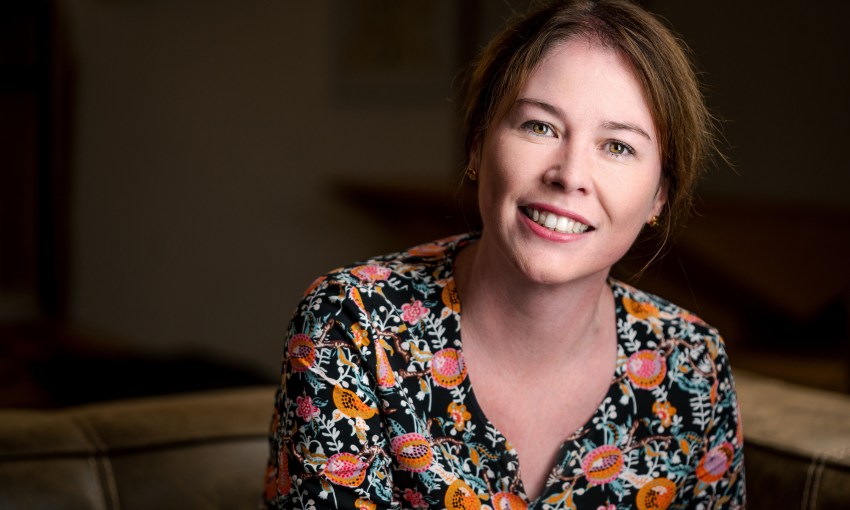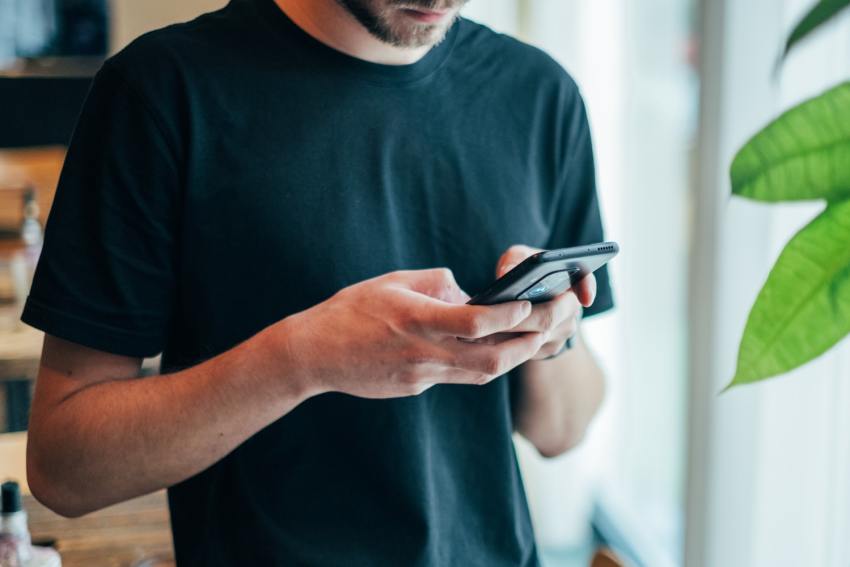Advice from an industry professional on how to get your rocks off without compromising your health.
How to practise safe sex during COVID-19
SPECIAL REPORT: COVID-19 ADELAIDE
Physical distancing is one of the most effective ways of controlling the spread of the coronavirus.
Keeping your distance stops the virus spreading from person to person via tiny droplets, expelled through sneezing, coughing and general sickly spluttering.
This is not new information, and we all by now know the drill: to avoid infection, stay at least 1.5 metres away from other people.
But it’s also worth noting that physical closeness and the occasional swapping of saliva are key components of the human experience. We are affectionate creatures that compulsively crave skin-on-skin contact with the people we like, love or lust after.
With a COVID-19 vaccine not yet on the horizon and physical distancing measures set to remain for at least the foreseeable future, CityMag got to wondering how we should balance this need for closeness against the inherent health risks.
Dr Amy Moten is a medical educator at SHINE SA, a not-for-profit provider of primary care services and education for sexual and relationship wellbeing, and she understands that for some people sex is a way to connect socially, and, if this is you, right now you might be feeling lost.

Dr Amy Moten aka SHINE SA’s medical educator
“They might not be able to just go out and join a book club,” she says.
“The way that they get social contact is by going to the beats and the saunas, and having that kind of [sexual] contact with people.”
But there is still a way to be intimate with someone, Amy says, if you assess the situation responsibly.
As we’ve noted, COVID-19 is transmitted through those pesky droplets. Amy points out most forms of sexual activity will put you at high risk of coming into contact with said droplets, and so the safest practise is to not have sex.
“Unless your particular kink is to wear a full body biohazard suit, there’s going to be some risk of transmission,” she laughs.
However, if you’re going to take the punt, the first thing to consider is whether you or the person you’re canoodling with lives in a community where transmission rates are high.
If you live with your sexual partner, you’re on an even playing field. But be wary of where you’re travelling, and how closely your partner is adhering to physical distancing protocol.
SA Health has a couple of resources tracking transmission rates within the South Australian community, which you can see here.
If community transmission rates are low – and they have been in South Australia to date – “[sex] should be safe,” Amy says.
But that’s not to say the risk is totally eliminated; despite the recent testing blitz, the majority of South Australian citizens have not been tested for COVID-19.
It’s also a good idea to have a frank conversation with your sex partner about whether you’ve both been maintaining physical distancing.
“It’s about mutual responsibility, which is always part of safer sex,” Amy says.
Part of that responsibility is examining your own behaviour. If you’ve started to develop COVID-19 symptoms (see the Department of Health symptom checker here), or have kept a blasé attitude about being amongst people or out in public – cancel that rendezvous. Or, take a cue from the corporate world, and transition your meet-up online or over the phone.
Not all sex need be penetrative, Amy explains, and not all intimacy is sexual and reliant on touch. It’s 2020 after all, and there are more ways of being saucy than simply meeting face-to-face.
“I also think it’s a good time to explore your own sexuality,” she says, adding that journey may involve figuring out what really turns you on.
“But be open with your partner or partners as to how you’re feeling, and that they might actually be feeling in a similar way, and that there are different ways you can talk through it to maximise intimacy.”
Most important of all, though, Amy says, is being respectful of your partner.
If they don’t want to get down and dirty, listen to and respect their decision. If this leaves you frustrated or feeling sexually unsatisfied, contact your GP via telehealth or call 1800 RESPECT to discuss ways of managing your emotions.
And talk to your significant other about how you’re feeling. Communication is key.

This picture: Jonas Leupe
“If you have a partner who’s not feeling intimate at the moment, because they’re worried about things and because they’re worried about transmission, then be respectful of that and look at other ways that you can be intimate that don’t involve close physical contact,” Amy says.
“I think the best way you can be respectful sexually is to make sure that consent is always present and always continuous for each and every act of sex and sexual intimacy.”
And while the pandemic has created a sense of alternate reality, it’s important to remember that all the usual rules still apply, which means if you don’t plan on starting a family, keep on using contraception.
Repeat pill scripts are available through your doctor via telehealth and SHINE SA is providing long-acting reversible contraception options, like IUD implants, through their clinics.
In the case of accidental pregnancy, be aware that abortion services in South Australia are available, but are limited due to restrictions caused by the pandemic.
“South Australia is one state that legally can’t provide medical abortion by telehealth services because it’s actually against the law to do that outside of a hospital,” Amy says.
“If you’ve got access to nothing else, then condoms, condoms, condoms.”
In short: be safe.
If you or someone you know is experiencing domestic violence call 1800 RESPECT on 1800 737 732.




